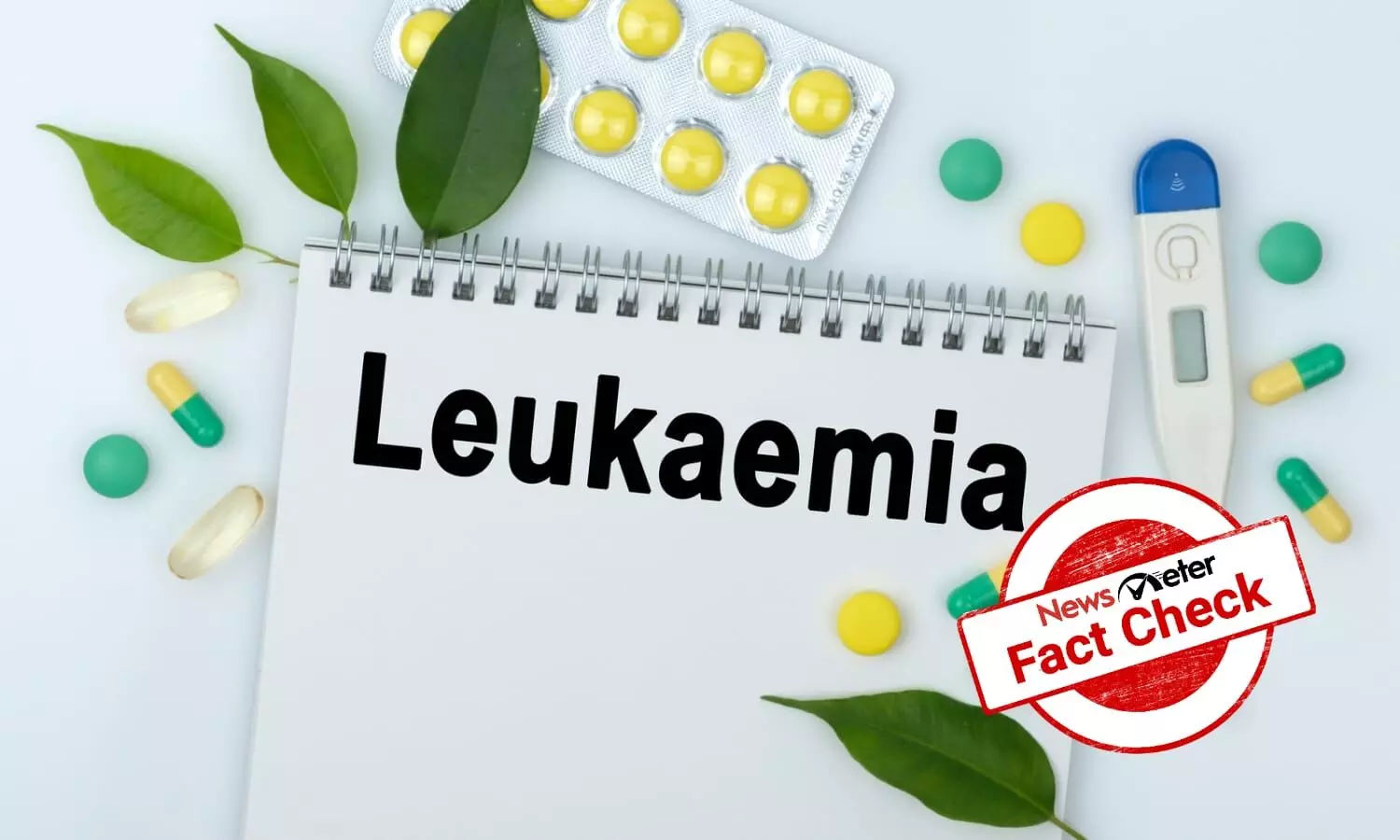No, seafood does not cause Leukaemia
A Facebook reel claiming that seafood is the most prominent cause of leukaemia is being widely circulated on social media.
By Sunanda Naik
Hyderabad: A Facebook reel claiming that seafood is the most prominent cause of leukemia is being widely circulated on social media.
In the viral video, an unidentified man says, “Stop eating seafood. Seafood causes cancer chemicals leukemia.” The on-screen caption urges viewers to “Stop eating seafood.”
(Screengrab from the viral reel)
The man in the viral video also claims that a number of diseases like Alzheimer’s and dementia are caused by consuming crabs, fish, and other sea foods. But we will only focus on the claim that seafood causes leukemia.
Fact Check
NewsMeter found the claim to be false.
First of all, what is leukemia?
According to Leukemia and Lymphoma Society, “Leukemia begins in a cell in the bone marrow. The cell undergoes a change and becomes a type of leukemia cell. Once the marrow cell undergoes a leukemic change, the leukemia cells may grow and survive better than normal cells. Over time, the leukemia cells crowd out or suppress the development of normal cells. The rate at which leukemia progresses and how the cells replace the normal blood and marrow cells are different with each type of leukemia.”
What causes Leukemia?
On this, Mayo Clinic says, “Scientists don’t understand the exact causes of leukemia. It seems to develop from a combination of genetic and environmental factors.”
It further adds, “Leukemia is thought to occur when some blood cells acquire changes (mutations) in their genetic material or DNA.”
We also found an article by City of Hope (that offers cancer aid) that says, “For cancer patients struggling with digestive issues and weight loss, seafood may help them maintain a healthy weight while providing key nutrients. The omega-3 fatty acids are most concentrated in fish and may help prevent cachexia, or muscle wasting, for patients struggling with appetite and weight loss.”
Lastly, a recent study has shown a relationship between higher consumption of fishes and a type of skin cancer called malignant melanoma. The study concluded, “We found that higher total fish intake, tuna intake, and non-fried fish intake were positively associated with risk of both malignant melanoma and melanoma in situ.”
However, it said that future studies are needed to investigate the potential biological mechanisms underlying these associations.
Hence, it is evident that the viral claim is a clear example of half and jumbled knowledge.